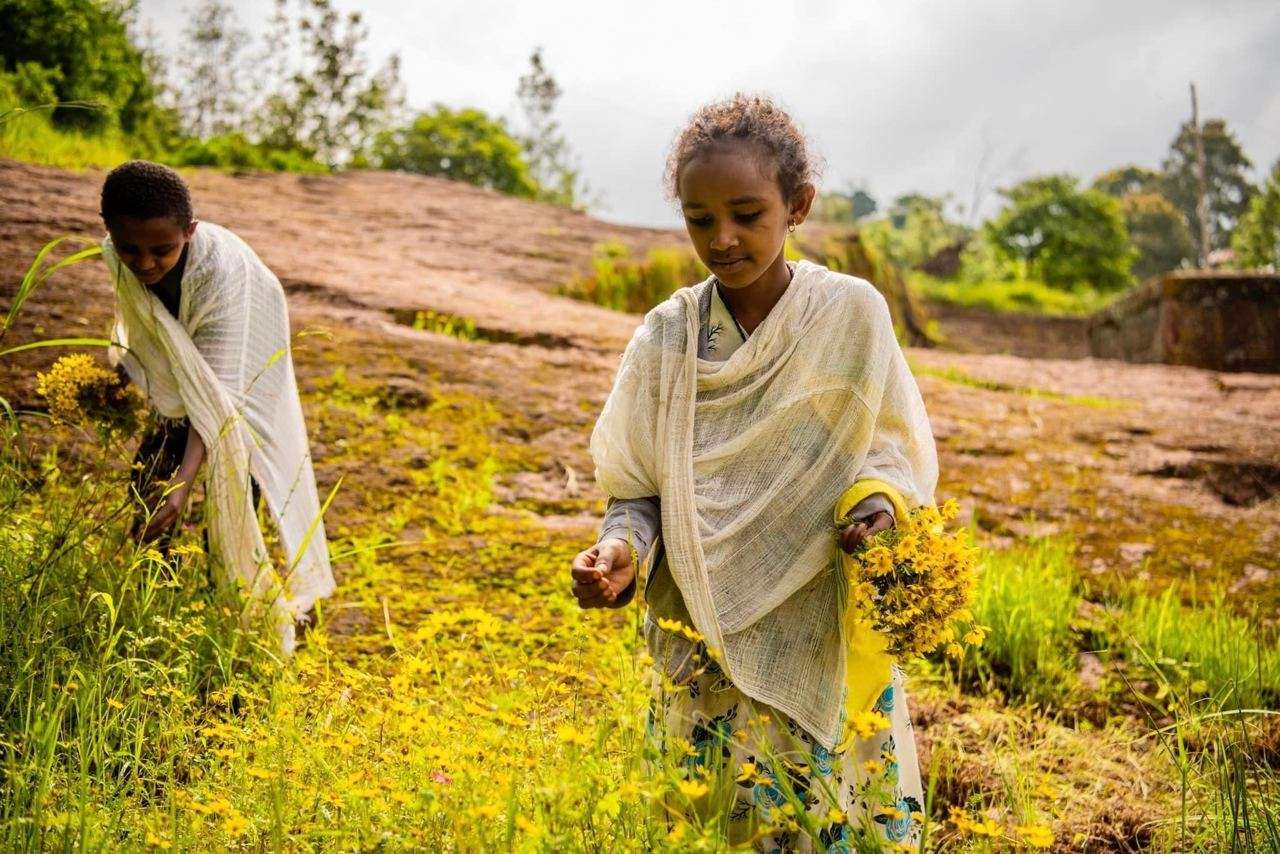Introduction:
Welcome to our blog, where we take you on an exciting journey to explore the rich cultural heritage of Ethiopia. Today, we delve into the fascinating Ethiopian calendar and its unique New Year celebration, known as “Adey Abeba.” Discover why this ancient calendar system stands apart from the rest of the world and how Ethiopians joyfully ring in the New Year.
The Ethiopian Calendar: A Timekeeping Marvel:
Unlike most calendars around the world, Ethiopia follows its own distinct calendar system. The Ethiopian calendar, also known as the Ge’ez calendar, traces its roots back to the ancient Egyptian solar calendar. It is believed to be one of the oldest calendars still in use today. This fascinating timekeeping marvel deviates from the Gregorian calendar that is widely adopted by many countries.

The Uniqueness of the Ethiopian Calendar:
One of the most intriguing aspects of the Ethiopian calendar is its structure. While the Gregorian calendar has 12 months, the Ethiopian calendar boasts an additional 13th month, making it a truly distinctive system. Each month consists of 30 days, except for the 13th month, called “Pagume,” which has only 5 or 6 days. This additional month helps align the Ethiopian calendar with the solar year, compensating for the slightly longer time it takes the Earth to orbit the sun.
Ethiopian New Year: Adey Abeba:
Ethiopians follow a 13-month calendar similar to that used in many Eastern Orthodox churches, trailing the western calendar by seven years and eight months. On the Gregorian calendar, Ethiopian New Year falls on September 11th.
According to the Bible, God created the earth in the month of September, and legend has it that King Solomon gave the Ethiopian Queen of Sheba jewels during a state visit over 3,000 years ago. Upon her return, at the end of the dry summer season, yellow flowers began to bloom in the foothills surrounding Addis Ababa, signifying the end of a long drought and the start of new life within the country.
In honor of their former empress, the festival was named Enkutatash, meaning the “gift of the jewels,” a name it still bears to this day. In September, the number of daylight and nighttime hours are the same, and this is another reason why September is considered spiritually significant in the eyes of early Ethiopian Christians.
Ethiopian New Year Celebrations:
Despite its religious connotations and history, Enkutatash, እንቁጣጣሽ is not an exclusively religious holiday. Celebrated by believers and non-believers alike, this time of year is seen as a period for community and family, a time when grievances are forgotten, and a collective shared experience is embraced.
The day commences with traditional songs, usually performed by groups of Ethiopian girls. A traditional meal of chicken stew, called “doro wat,” and injera, a spongy sourdough flatbread, is enjoyed, while lashings of traditional honey-based wine and fresh Ethiopian coffee complete the feast.
As nighttime approaches, families gather and begin building a bonfire, which is lit once night descends. From here, celebrations are held all night long, filled with dancing, singing, and cultural performances. The festivities culminate at sunrise, marking the beginning of the New Year with renewed hope and joy.
SOME INTERESTING FACTS ABOUT ETHIOPIA 🇪🇹
1. The Ethiopian calendar and the Georgian calendar are not the same. The Ethiopian calendar has thirteen months, so they are currently in 2015.
2. Ethiopians use a different way to count the hours of the day because they think that the clock should start when the day does. Ethiopia, on the other hand, has 13 months in a year. The Ethiopian calendar is now 7 years behind the rest of the world’s calendars.
3. Ethiopia is the only country in Africa that has never been colonized. The Italians tried, but they did a terrible job and lost to the strong Ethiopian forces.
4. Ethiopia has the oldest and most unique Bible in the world.
5. Ethiopia has some of the best coffee in the world. In fact, Ethiopia makes a lot of coffee.
6. Some archeological finds say that Ethiopia is where people first lived. Meaning that life began in Ethiopia.
7. In 1960, Abebe Bikila, who was from Ethiopia, was the first Black African to win gold at the Olympics. He won by running without shoes. 8. In Amharic, the name of the city of Addis Ababa means “New Flower.” One of the oldest cities in the world is here.
9. Ethiopia has some of the world’s best, healthiest, and most varied food on the African continent.
10. The biggest holiday in Ethiopia is called Timket and it lasts for three days every year. It celebrates Jesus Christ’s baptism in the river Jordan. It is one of the biggest events in the world, and it happens every year. A lot of people from all over the world come to the event.
11. Ethiopia has more UNESCO World Heritage Sites than any other country on the continent. Ethiopia has the most UNESCO World Heritage sites of any country in Africa. There are 9 in total, and they range from places of worship to nature areas. There is the Simien National Park, the Konso Cultural Landscape, and the buildings cut out of rocks.
12. In Ethiopia, people speak more than 80 different languages. People speak more than 80 different languages. Local languages like Oromo, Amharic, Somali, and Tigrinya, as well as English, are used in schools.
13. More than half of the mountains in Africa are in Ethiopia. Ethiopia has a lot of cultural and historical importance, and it also has some of the most beautiful natural scenery in the world. Ethiopia has a beautiful scenery with low deserts and volcanic plateaus, but it also has a lot of mountains. About 70% of the mountains in Africa are in Ethiopia.
14. Ethiopia is the oldest country in Africa. Ethiopia is the oldest separate country on the continent. It was founded in 980 BC. Ethiopia is also one of the most important places for archaeology in the world because it has remains of some of the oldest people on earth, which date back millions of years. Not only that, but it has more than 106 million people, making it the second most populous country in the world.
Conclusion:
The Ethiopian calendar and the celebration of the Ethiopian New Year, Adey Abeba, offer a glimpse into the country’s rich cultural tapestry and deep-rooted traditions. The 13-month calendar and the unique festivities during the New Year showcase Ethiopia’s unique identity and sense of unity.
If you’re planning a trip to Ethiopia, experiencing the Ethiopian New Year can be a truly immersive and memorable cultural experience. Immerse yourself in the joyful celebrations, savor the traditional delicacies, and witness the vibrant traditions that have stood the test of time.
Embark on an adventure to Ethiopia and embrace the magic of the Ethiopian calendar and the enchanting celebration of Adey Abeba. Happy Ethiopian New Year!

